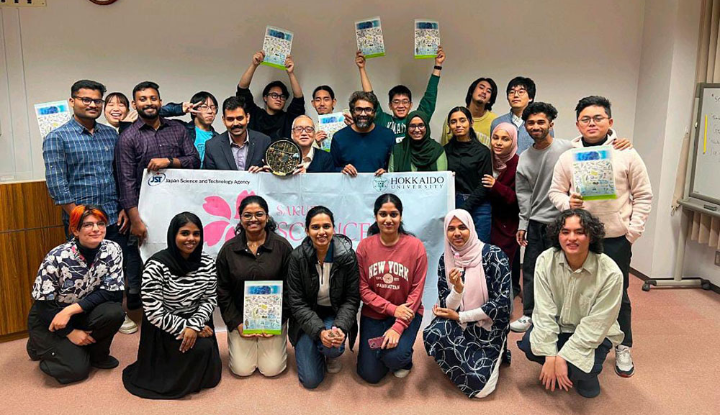Reported on:
2025-11-16
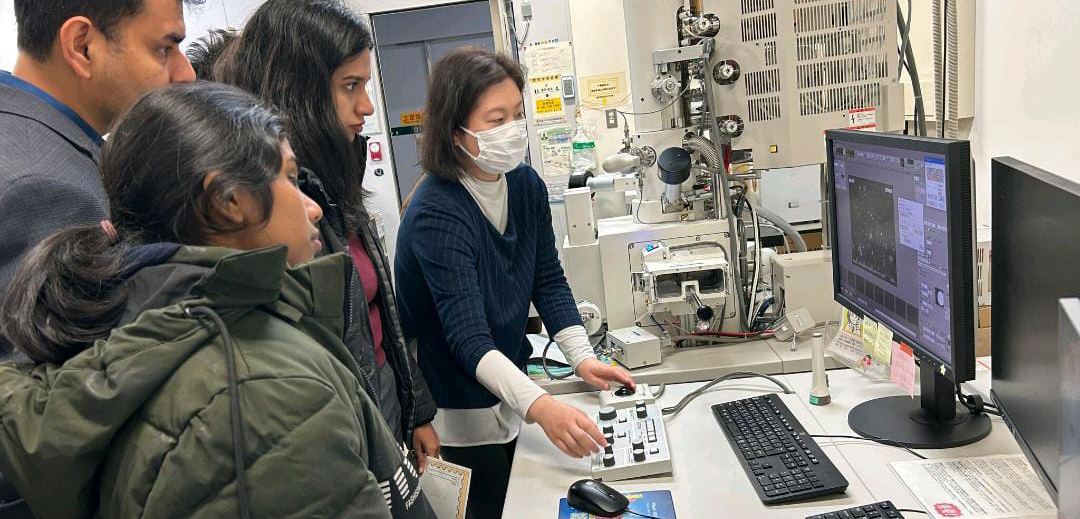
A six-member delegation from Farook College participated in the Sakura Science Exchange Program 2025 held at Hokkaido University, Japan, from November 9 to 15, 2025. The week-long program provided an exceptional opportunity for both students and faculty to experience Japan’s advanced research environment and dynamic academic culture. The visit was supported and funded under the RUSA (Rashtriya Uchchatar Shiksha Abhiyan) project & Japan Science and Technology Agency (JST), aimed at enhancing global academic exposure and science exchange between India and Japan.
The visit was hosted and coordinated by Dr. P. K. Hashim, Assistant Professor at the Graduate School of Chemical Sciences and Engineering, Hokkaido University, under the Research Institute for Electronic Science (RIES). From Farook College, the program was coordinated by Dr. Midhun Shah, Head of the Department of Physics, who led the team and facilitated the academic collaboration between the two institutions.
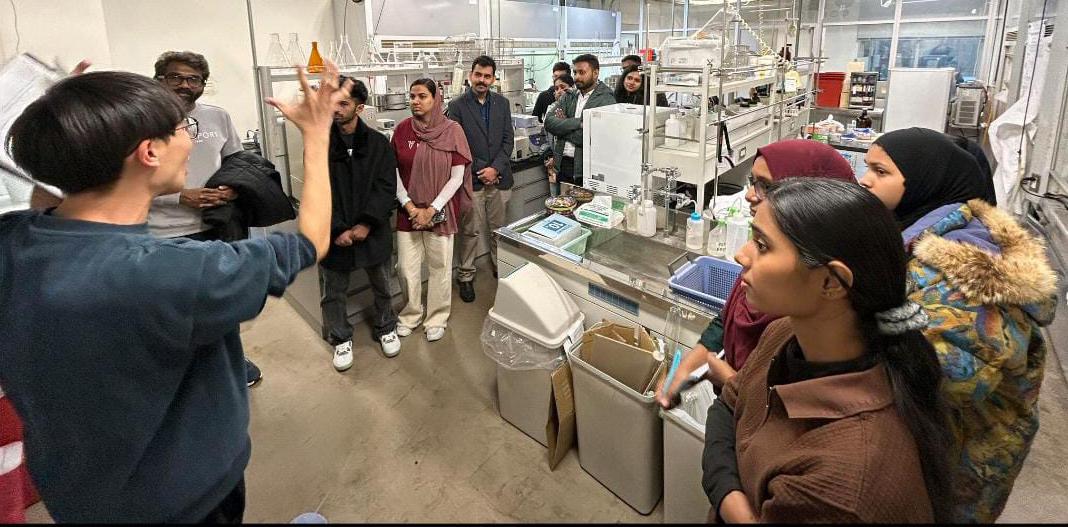
The student delegation included Nihal K (BSc Computer Science Hons), Fathimath Amna Shan (BSc Botany Hons), Fathima Shana (BSc Chemistry Hons), Malavika Prem (BSc Physics Hons), and Jaseela M (BSc Zoology Hons) — all Fourth-semester students representing diverse scientific disciplines. The multidisciplinary composition of the team reflected the program’s spirit of interdisciplinary learning and cooperation.
During their stay, the delegation visited several advanced laboratories at RIES and took part in hands-on scientific sessions, including quantum dot preparation, gel synthesis, Scanning Electron Microscope (SEM) operation, cleanroom exposure, and the design and fabrication of a micro microscope etc. These sessions provided participants with valuable exposure to high-end research practices and the use of advanced instrumentation, connecting classroom learning with real-world applications.
The program clearly demonstrated how boundaries between physics, chemistry, biology, and computational sciences dissolve in the pursuit of advanced research. The participants witnessed firsthand how interdisciplinary collaboration is at the core of modern scientific discovery, fostering innovation across diverse fields such as nanotechnology, photonics, and materials science.
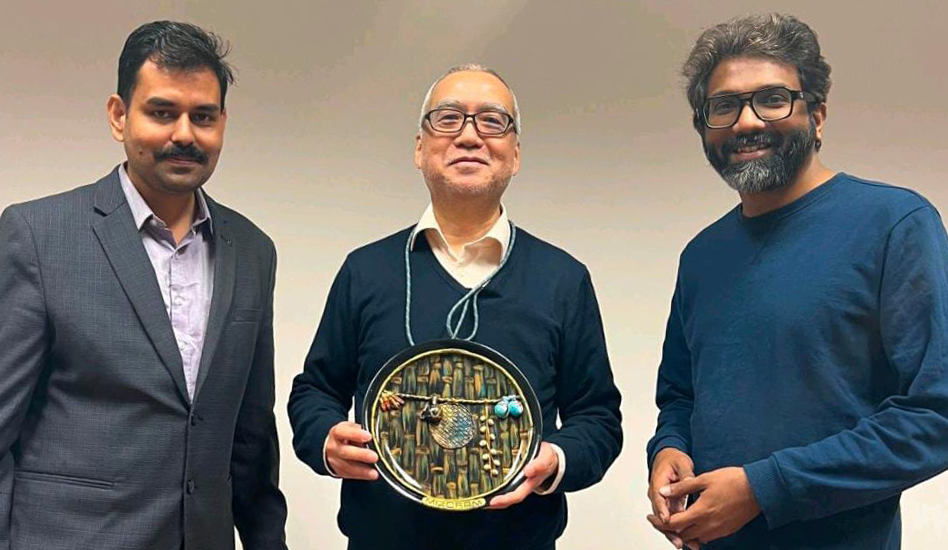
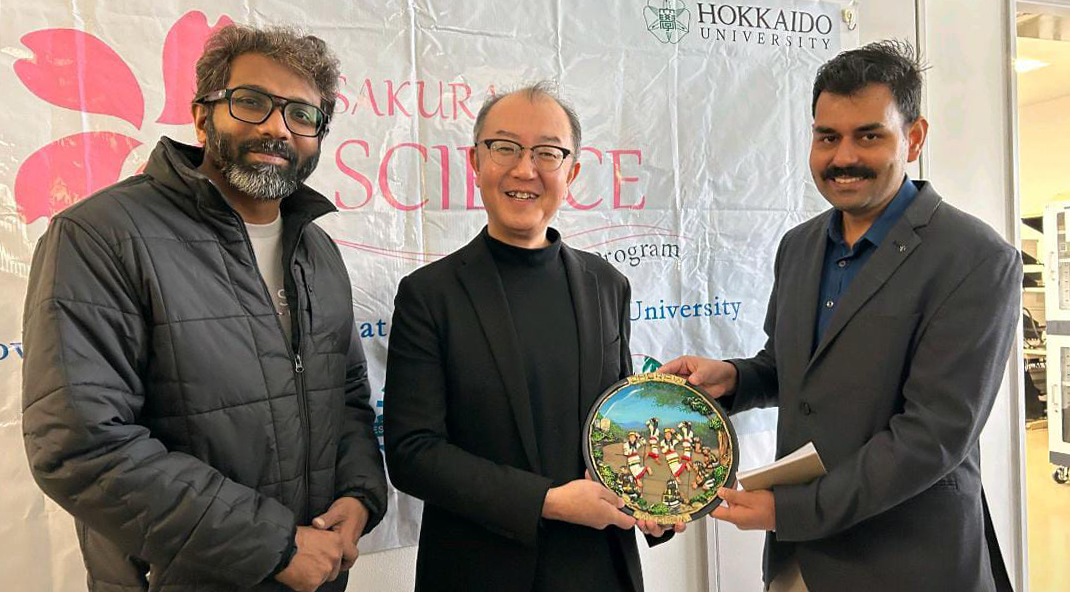
Alongside academic sessions, the delegation also engaged in cultural exchange activities, including visits to the Hokkaido University Museum, Planetarium, and interactive sessions with Japanese researchers and students. These experiences deepened their understanding of Japan’s research ethos, culture of precision, and collaborative spirit.
Reflecting on the visit, Dr. Midhun Shah remarked that the program was a transformative learning experience for both students and faculty. “Exposure to such high-level interdisciplinary research has broadened the horizons of our students. It will certainly inspire them to pursue higher studies and contribute meaningfully to emerging scientific frontiers,” he said.
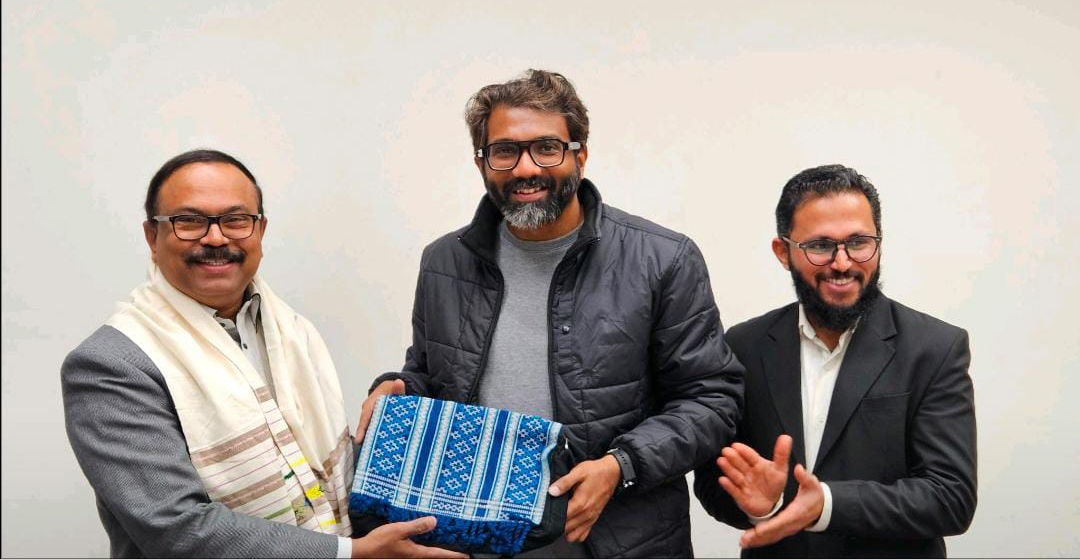
The delegation returned enriched with new knowledge, perspectives, and motivation — reaffirming that the future of science lies in integration, where disciplines unite to shape the next generation of discoveries.
